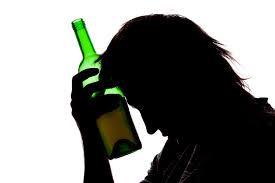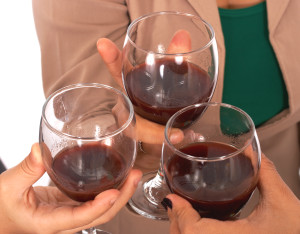Common signs and symptoms of alcohol abuse
Common signs and symptoms of alcohol abuse: The Identification mechanism of alcohol addiction
It may not be very practical for anyone to candidly talk about alcohol abuse if the individual is not privy to the information about certain common signs and symptoms of alcohol abuse. It therefore means that you cannot purport to be dealing with the problem of alcohol abuse if you are not in the know of the signs and symptoms of the substance. This is what doctor Dalal Akoury is going to help us understand for a couple of minutes in this article and you don’t want to miss on the expertise of this great and experienced addiction professional of over two decades of offering lasting treatment solutions to her clients. You too can be part of her great team of fully recovered alcoholic and join in the long list of positive testimonies by scheduling for an appointment with her today for the commencement of your recovery journey. In the meantime let us get back to the subject of discussion. The following will be some of the indicators that you may be jumping into alcohol addiction at a very high speed:
- If you have been repeatedly neglecting your responsibilities at home, work, or school because of your drinking. Like for instance, performing poorly at work, flunking classes, neglecting your kids, or skipping out on commitments because of your drinking hung over.
- Using alcohol in situations where it’s both physically, socially, morally and psychologically dangerous like for example, drinking and driving, operating machinery while intoxicated, or mixing alcohol with prescription medication against doctor’s orders.
- When you are ever experiencing repeated legal problems with the law enforcement agencies on account of your drinking. For example, being arrested for driving under the influence or for drunk and disorderly conduct.
- Continuing to drink even though your alcohol use is causing problems in your relationships. Getting drunk with your buddies, for example, even though you know your wife will be very upset, or fighting with your family because they dislike how you act when you drink.
- Drinking as a way to relax or de-stress. Many drinking problems start when people use alcohol to self-soothe and relieve stress. Getting drunk after every stressful day, for example, or reaching for a bottle every time you have an argument with your spouse or boss.
Common signs and symptoms of alcohol abuse: The path from alcohol abuse to alcoholism
Not all alcohol abusers become full-blown alcoholics, but it is a big risk factor. Sometimes alcoholism develops suddenly in response to a stressful change, such as a breakup, retirement, or another loss. Other times, it gradually creeps up on you as your tolerance to alcohol increases. If you’re a binge drinker or you drink every day, the risks of developing alcoholism are greater.
Common signs and symptoms of alcohol abuse: Signs and symptoms of alcoholism (alcohol dependence)
Alcoholism is the most severe form of problem drinking. Alcoholism involves all the symptoms of alcohol abuse, but it also involves another element: physical dependence on alcohol. If you rely on alcohol to function or feel physically compelled to drink, you’re an alcoholic.
Under normal circumstances, this is often the major warning sign of alcoholism. If your answer to these questions is yes, then tolerance is clearly observable. Do you have to drink a lot more than you used to in order to get buzzed or to feel relaxed? Can you drink more than other people without getting drunk? These are signs of tolerance, which can be an early warning sign of alcoholism. Tolerance means that, over time, you need more and more alcohol to feel the same effects.
After tolerance withdrawal comes in second as one of the major warning sign of alcoholism and a gain if your answer to these questions is yes then it is easy to conclude that alcoholism is knocking on your door. Do you need a drink to steady the shakes in the morning? Drinking to relieve or avoid withdrawal symptoms is a sign of alcoholism and a huge red flag. When you drink heavily, your body gets used to the alcohol and experiences withdrawal symptoms if it’s taken away. These include:
- Anxiety or jumpiness
- Shakiness or trembling
- Sweating
- Depression
- Headache
- Insomnia
- Irritability
- Nausea and vomiting
- Loss of appetite
- Fatigue
Doctor Akoury notes it is important to take into account that in severe cases, withdrawal from alcohol can also involve hallucinations, confusion, seizures, fever, and agitation. It is therefore very important that as soon as these symptoms are identified, timely action must be taken because they can be dangerous; therefore schedule for an appointment with doctor Akoury and let treatment begins without any further delays.
Other signs and symptoms of alcoholism (alcohol dependence)
- You’ve lost control over your drinking. You often drink more alcohol than you wanted to, for longer than you intended, or despite telling yourself you wouldn’t.
- You want to quit drinking, but something is just pulling you back making you to embrace the fact that you can’t. You have a persistent desire to cut down or stop your alcohol use, but your efforts to quit have been unsuccessful.
- You have given up other activities because of alcohol. You’re spending less time on activities that used to be important to you (hanging out with family and friends, going to the gym, pursuing your hobbies) because of your alcohol use.
- Alcohol takes up a great deal of your energy and focus. You spend a lot of time drinking, thinking about it, or recovering from its effects. You have few if any interests or social involvements that don’t revolve around drinking.
- You drink even though you know it’s causing problems. For example, you recognize that your alcohol use is damaging your marriage, making your depression worse, or causing health problems, but you continue to drink anyway.
Common signs and symptoms of alcohol abuse: Drinking problems and denial
Finally doctor Akoury says that denial is one of the biggest obstacles to getting help for alcohol abuse and alcoholism. The desire to drink is so strong that the mind finds many ways to justifying drinking, even when the consequences are obvious. Therefore if you find yourself justifying your drinking habits by lying about them or refusing to discuss the subject, take a moment to consider why you’re so defensive. If you truly believe you don’t have a problem, there should be no reason for you to cover up your drinking or make excuses.
Common signs and symptoms of alcohol abuse: The Identification mechanism of alcohol addiction




 The natural addiction clinics incorporate the use of herbs and specific diets to help restore the balance in the brain chemistry and quell cravings. The natural addiction clinics are not only for those who are
The natural addiction clinics incorporate the use of herbs and specific diets to help restore the balance in the brain chemistry and quell cravings. The natural addiction clinics are not only for those who are 





 Liver cancer is a problem that has affected many people and lots is being done to help alleviate its effects on the world’s population. According to the
Liver cancer is a problem that has affected many people and lots is being done to help alleviate its effects on the world’s population. According to the  Alcohol is made up of other carcinogens and these carcinogens interacts with the liver, the liver being a vital filter organ through which every pint of alcohol consumed passes through. When these toxins overburden the liver, it becomes easier for infections that may later escalate into liver cancer to be initiated.
Alcohol is made up of other carcinogens and these carcinogens interacts with the liver, the liver being a vital filter organ through which every pint of alcohol consumed passes through. When these toxins overburden the liver, it becomes easier for infections that may later escalate into liver cancer to be initiated.





 Alcohol
Alcohol From the blood samples it was observed that 20 minutes after peak intoxication, there was increased immune system activity. There were higher levels of three types of white blood cells that are key components of the immune system namely leukocytes, monocytes and
From the blood samples it was observed that 20 minutes after peak intoxication, there was increased immune system activity. There were higher levels of three types of white blood cells that are key components of the immune system namely leukocytes, monocytes and 




